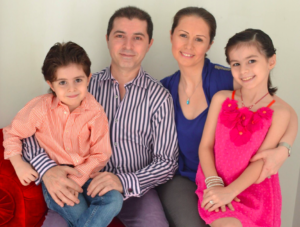February 26, 2021

Fatemeh Alamdari has had a front-row seat on the hor-rors of government bureaucracy.
It all started on an upbeat note in 2014 when Alamdari won the Diversity Immigrant Visa lottery, a program established by the US Immigration Act of 1990 that gives out 55,000 immigrant visas every year based on a lottery.
The lottery granted visas for Alamdari and her two children, but not for her husband, Farshad Amirkhani.
It has now been six years since Amirkhani has seen his wife and children.
“He’s missing days that we cannot replace. He’s not with them to see how they grow, how they do. He’s missing everything about them,” Alamdari said. “We cannot replace being together with FaceTime.”
Over the years, challenges have delayed the family’s reunification. In 2017, the Trump Administration issued an executive order to ban travel from seven predominantly Muslim countries, including Iran.
The act blocked all the progress Amirkhani’s case made in the previous two years.
“Still, I have hope. If I did not have hope, I would not be here, so still I have hope,” said Alamdari.
Amirkhani applied for a waiver to the travel ban. When the family experienced little to no progress, Alamdari joined 14 Iranian-American families in a lawsuit suing the US government over the travel ban in 2019. But that proceeded slowly.
Alamdari then became a US citizen last March, which provided her family an exemption from the travel ban’s restrictions.
Then COVID-19 struck.
“It’s almost one year that he’s stuck because of the pandemic,” Alamdari said. “The kids were excited that I’m getting my citizenship. He will be here soon. But it’s still nothing.”
Amirkhani only needs to renew a medical exam at the US Embassy in Turkey to be approved for his spousal visa. However, due to the pandemic, the embassy is only providing services to Turkish citizens and residents.
Amirkhani has not been approved to transfer his immigration case out of Turkey, leaving the family in limbo again.
“No options. Just waiting,” Alamdari said. “We are unlucky.”
With little else to do other than wait for the global pandemic to end, Alamdari said they are focusing on keeping hope alive and dreaming of what being reunited as a family will be like.